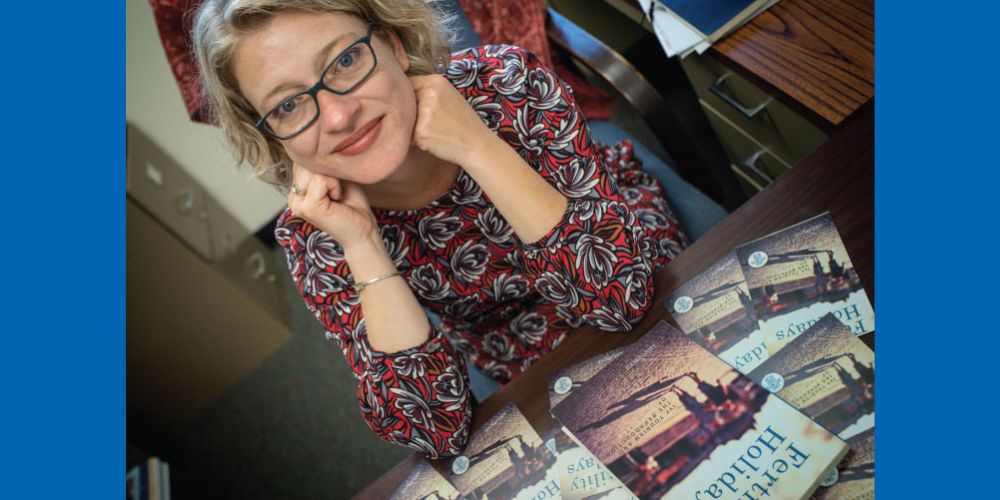On food, feasting and culture

At a time of year so often associated with food and excess—and usually a combination of both—Amy Speier, associate professor of anthropology, invites us to consider that during the holidays, the sense of abundance can go hand-in-hand with the very human drive toward empathy and connection.
In your “Food and Culture” course, students learn to apply anthropological models to the study of what we eat and why. Why do you think it’s important to look at food through this lens?
Speier: I've had the pleasure of teaching this class at four different universities throughout my career, and it's been one of the most pleasurable classes—I mean, who doesn't love food? Cultural anthropology is the study of what makes us human. And needing to eat is one of the basic human needs that we have. But the ways that we meet that need are so varied cross-culturally that it's fascinating. It's a topic that has so much resonance across disciplines.
Around Thanksgiving, and during this holiday season overall, we Americans tend to eat a lot. What does that say about us as humans?
Speier: I think that the abundance that we are hoping to enjoy and to share with others is not just about the abundance of food and its deliciousness, it’s also meeting a deeper need. Food can be an anchor for nostalgia—you know, recreating family recipes that your grandparents have created over the years and passing that down. So I think people want to feel an abundance not just of food, but of love and of family and togetherness. It’s not just how much is on your plate; it's correlated with all these other feelings that get heightened at this time of year.
And then, of course, this time of year so many also want to extend that abundance out into the community to help people in need.
Speier: Growing up, I remember feeding the homeless at Thanksgiving. My mother and I would pass out pie or even make a meal. Hopefully, when we feel that sense of abundance, we can share it too, right? We can reach out to those who may not have that much.
How does that sense of food and community extend across cultures—particularly on such a diverse campus like UTA’s?
Speier: It’s actually kind of a radical notion that food brings people together—and that you can use it to bring people of differences together. I try to do that in my classroom because we have so many students from so many different backgrounds. I have students make a recipe from their families, and they bring it in, and then the act of just sharing the food in the classroom and sharing each other's recipes is amazing. I've tried so many delicious foods over the past 10 years!
- Interview by Amber Scott, Marketing, Messaging and Engagement